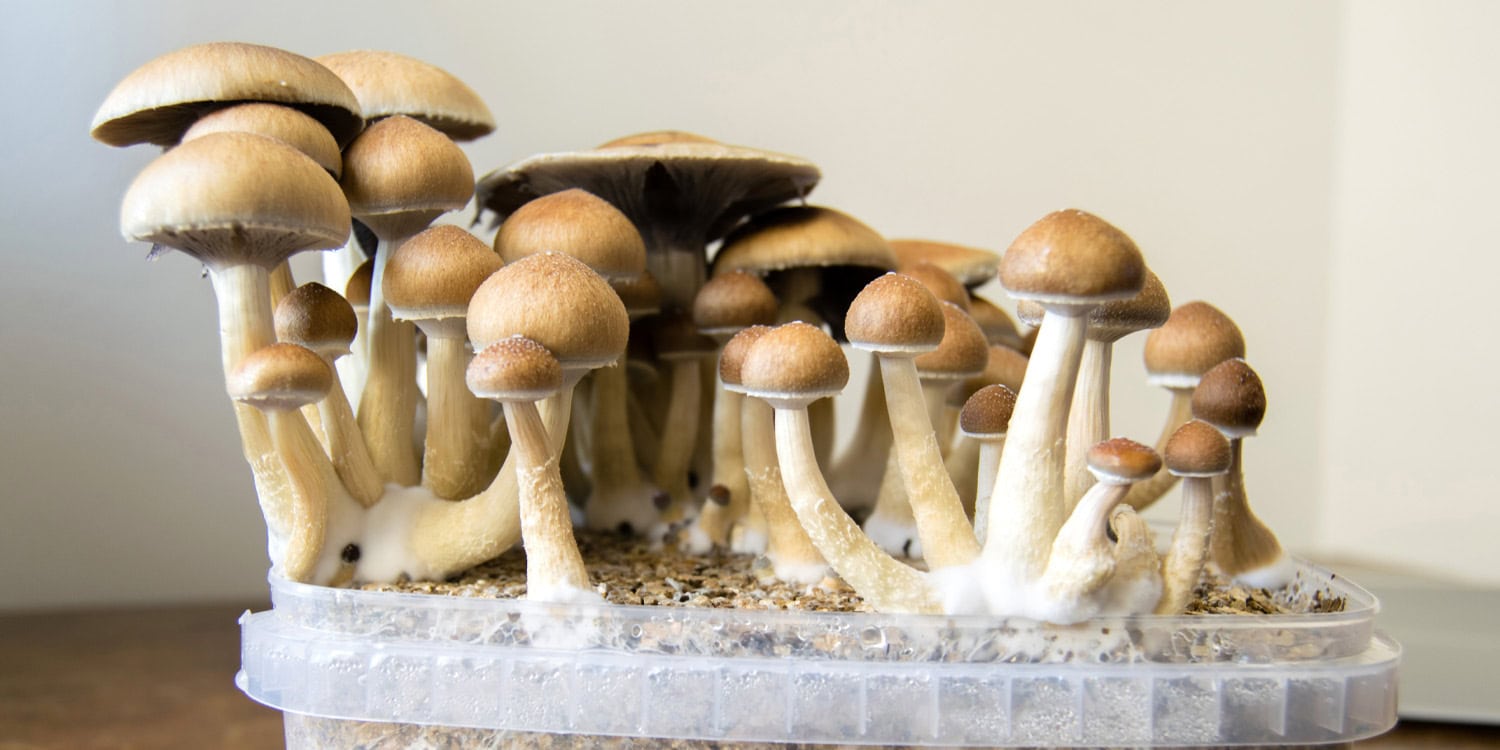Researchers have discovered that extracts from Psilocybe cubensis, commonly known as magic mushrooms, may play a role in reversing memory deficits caused by chronic stress. The study, published in the Journal of Psychoactive Drugs, found that when administered under specific conditions, the mushroom extract restored spatial learning and memory impairments and increased levels of brain-derived neurotrophic factor (BDNF), a protein essential for brain plasticity. These effects were observed in rats subjected to a chronic unpredictable mild stress protocol, a widely used animal model for inducing stress-related cognitive deficits.
Magic mushrooms have long been recognized for their psychoactive effects, primarily due to their active components, psilocybin and psilocin. These compounds influence serotonin receptors, particularly 5-HT2A, which are associated with mood regulation, cognitive processes, and neuroplasticity. Previous studies have shown that psilocybin can enhance synaptic plasticity, increase dendritic spine density, and upregulate genes related to neuroplasticity.
Chronic unpredictable mild stress is a model often used to mimic the effects of long-term stress in humans. It involves exposing animals to a series of mild but unpredictable stressors over several weeks, leading to behavioral and physiological changes such as anxiety, depression-like symptoms, and cognitive impairments. Previous research has demonstrated that chronic stress reduces BDNF levels in the hippocampus, a brain region critical for memory and learning. In their new study, the researchers sought to explore whether Psilocybe cubensis extract could mitigate these effects.
“Psychedelics have very interesting mechanisms. These substances are like a double-edged sword. It seems that most psychedelics, at very low doses, can have very powerful and rapid effects on stimulating neurogenesis and improving mental disorders, especially depression,” said study author Salar Vaseghi, the head of the Cognitive Neuroscience Lab at the Iranian Institute of Medicinal Plants.
“Since in depression, a person seriously needs to ‘change their perspective and mindset,’ significant and rapid stimulation of neurogenesis can be a lifesaver, especially for treatment-resistant depression. Also, psychedelics such as psilocybin can be very beneficial for cognitive impairments.”
The researchers used male Wistar rats as their subjects, dividing them into groups based on whether they were exposed to chronic stress and whether they received Psilocybe cubensis extract or a placebo. In total, 140 rats participated, with each experimental group containing seven rats. Stress was induced using a chronic unpredictable mild stress protocol over four weeks, involving a rotation of stressors such as food and water deprivation, exposure to cold water, and heat stress. Rats not subjected to stress served as controls.
The effects of the Psilocybe cubensis extract were tested at varying times relative to training sessions in a water maze, a standard tool for evaluating spatial learning and memory in rodents. This maze requires rats to locate a hidden platform using visual cues, and their performance provides insights into their spatial memory and learning capabilities. The researchers measured escape latency (time taken to find the platform) and the distance traveled during the trials. A subsequent probe test assessed memory retention.
To examine the molecular effects, particularly on BDNF levels, researchers collected hippocampal tissue after the tests and analyzed it using real-time polymerase chain reaction.
The researchers found that rats exposed to chronic stress showed impairments in spatial learning and memory compared to unstressed controls, confirming the cognitive deficits induced by chronic unpredictable mild stress. These stressed rats also had lower levels of BDNF in their hippocampus, aligning with prior research on the impact of stress on brain plasticity.
When Psilocybe cubensis extract was administered 24 or 48 hours before training, it restored spatial learning and increased BDNF levels in stressed rats. Notably, only the 48-hour pre-training administration also reversed memory deficits observed during the probe test. In contrast, administering the extract immediately before or after training, or shortly before the probe test, had no beneficial effects on stressed rats.
Interestingly, in non-stressed control rats, the extract impaired both spatial learning and memory when given at most time points, except when administered 48 hours before training. Under these conditions, it increased BDNF levels without negatively affecting cognitive performance.
“The most important point to note is the dose- and time-dependent properties of psychedelic substances,” Vaseghi told PsyPost. “Psilocybin in this study showed that it acts very time-dependently. Importantly, psychedelics behave very unpredictably.”
But as with all research, there are caveats to consider. First, the study focused exclusively on male rats, leaving open the question of whether similar effects would be observed in females. Additionally, the long-term consequences of Psilocybe cubensis administration remain unclear, as the study only assessed short-term outcomes. The specific dose used in the study (20 mg/kg) might not generalize to other doses or forms of psilocybin.
Another limitation is the use of the mushroom extract rather than purified psilocybin or psilocin, making it challenging to pinpoint the active compound responsible for the observed effects. Furthermore, while the Morris water maze is a well-established tool for studying spatial memory, it does not capture all dimensions of cognitive function or the broader behavioral changes associated with chronic stress.
Future research could explore the mechanisms underlying the time-dependent effects of Psilocybe cubensis observed in this study. For example, why did only the 48-hour pre-training administration restore both spatial learning and memory in stressed rats? Investigating the role of other plasticity-related molecules and pathways, as well as expanding the range of behavioral and cognitive tests, could provide a more comprehensive understanding of how psilocybin-containing mushrooms affect the brain. Clinical studies in humans would also be necessary to determine whether these findings translate to stress-related cognitive impairments in people.
“The most important warning is the general use of psychedelics,” Vaseghi said. “Psychedelic drugs can be very dangerous and should not be freely available to the public. The best thing to do is to make psychedelics available at medical centers in microdoses.”
The study, “The Effect of Psilocybe cubensis on Spatial Memory and BDNF Expression in Male Rats Exposed to Chronic Unpredictable Mild Stress,” was authored by Reza Ghaffarzadegan, Mokhtar Karimi, Behnaz Hedayatjoo, Hamidreza Behnoud, Eghbal Jasemi, Mahsa Mohammadi, Samira Roustaei, Ali Razmi, and Salar Vaseghi.




